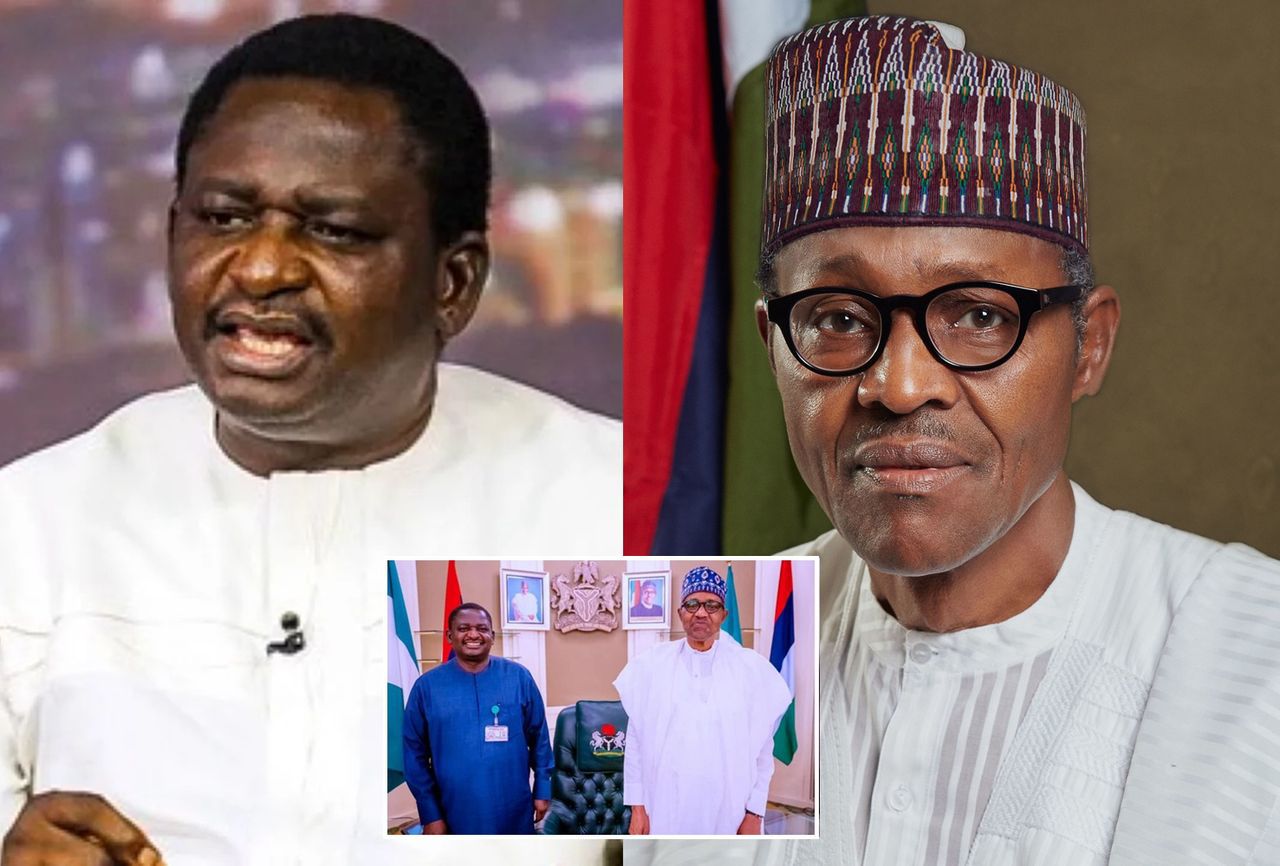
Nigerian Hospitals Could Have Killed Him – Femi Adesina’s Blunt Defense of Buhari’s Foreign Medical Trips Sparks Outrage

In a moment that has sent shockwaves through the Nigerian political and healthcare landscape, former presidential aide Femi Adesina delivered a frank and unapologetic defense of former President Muhammadu Buhari’s repeated medical trips abroad, claiming that if Buhari had relied solely on Nigerian hospitals, he might not have survived to lead the country. The statement, which has ignited a flurry of debates across social media and political circles, comes amidst renewed scrutiny of Nigeria’s fragile healthcare system in the wake of Buhari’s death.
Femi Adesina, who served as the Special Adviser on Media and Publicity to Buhari throughout his administration, made the controversial remarks while responding to criticisms over the former president’s long-standing preference for medical treatment overseas. Adesina argued that Buhari’s decision to seek medical care abroad was not just justified but a necessity to preserve his life and fulfill his leadership mandate. According to him, the level of medical expertise required to treat the president’s ailments simply did not exist in Nigeria at the time, and suggesting otherwise is both dishonest and dangerous.
“If Buhari had chosen to use Nigerian hospitals, he could have long been dead because they may not have the expertise needed. He needed to be alive to lead the country,” Adesina said, unapologetically defending the former leader's decision, a move many saw as an indictment of Nigeria’s health infrastructure.
The former aide’s statement, while perhaps intended as a practical explanation of a past reality, has not sat well with many Nigerians, especially in a country where the average citizen cannot afford the luxury of foreign medical care. For years, Buhari’s regular trips to London for medical check-ups and extended treatments were a source of public frustration, especially as hospitals across Nigeria continued to crumble from underfunding, outdated equipment, and brain drain. His actions were often seen as symbolic of a ruling class that had abandoned its own people, jetting off to Europe for healthcare, education, and leisure while leaving the rest of the population to fend for themselves in failing institutions.
Now, Adesina’s candid confession seems to confirm what critics have long suspected – that even those in power had no faith in the system they were elected to improve.
Social media exploded following the comments, with many users expressing a mix of anger, disbelief, and resignation. “Imagine saying this like it’s normal,” one user tweeted. “So the rest of us who can’t afford UK hospitals are just waiting to die?” Another wrote, “Femi Adesina has finally admitted what we’ve known all along – our leaders don’t care because they will never use the same systems they subject us to.”
Others took a more sarcastic tone. “The former president needed to stay alive to lead us into more economic hardship, nepotism, and banditry,” one critic posted on Facebook. “What an honor.”
Beyond the online backlash, health professionals and policy analysts weighed in on the matter, calling the statement a sobering reminder of the neglect and underinvestment in Nigeria’s public health sector. According to the Nigerian Medical Association, the health sector has long suffered from gross underfunding, inadequate staffing, poor remuneration for workers, and a lack of modern infrastructure. It’s no wonder, they argue, that even presidents don’t feel safe receiving treatment within the country.
But others have accused Adesina of being tone-deaf and insensitive in light of Buhari’s passing and the national mourning that has followed. The former president died on Sunday, July 13, 2025, and the government has since declared a week of mourning, with flags flying at half-mast and public activities suspended. For many, Adesina’s remarks feel poorly timed and needlessly provocative, suggesting that rather than inspiring reforms or introspection, the legacy of Buhari’s medical tourism is being defended as inevitable.
Ironically, it was under Buhari’s administration that the National Health Act was revisited and multiple promises were made to revamp Nigeria’s healthcare delivery system. Billions were allocated to healthcare annually, yet the results remain difficult to identify on the ground. Doctors continued to go on strike. Hospitals continued to lack basic drugs. Patients were still being treated with candles during power outages. And for many, the only noticeable change was the growing list of politicians who flew out of the country for their own medical needs.
Femi Adesina’s comment, while brutally honest, has now forced a difficult conversation into the open. It raises the question: if the nation’s own president had to fly abroad to stay alive, what hope is there for the average Nigerian?
It also calls into question the moral obligations of leadership. Should a leader prioritize personal survival by seeking the best care money can buy, or should they endure the same system they expect their citizens to survive in and use that experience as a catalyst for reform? And what does it say about governance when a country’s most powerful man can’t rely on the very institutions he presides over?
The late President Buhari, for all his promises to fight corruption and strengthen national institutions, never succeeded in reversing the trend of medical tourism. Instead, he became one of its most prominent faces. Now, in death, that legacy is being dissected even more intensely – not just by critics, but by his own former aides.
As Nigeria continues to mourn, the painful realities of its healthcare crisis remain unaddressed. With a new administration in power, the spotlight is now firmly on whether real reforms will finally emerge or whether Femi Adesina’s chilling admission will be just another bitter quote in a history of neglect and elite hypocrisy.
For many Nigerians, the tragedy isn’t just that Buhari had to leave the country to stay alive – it’s that so many others can’t.


